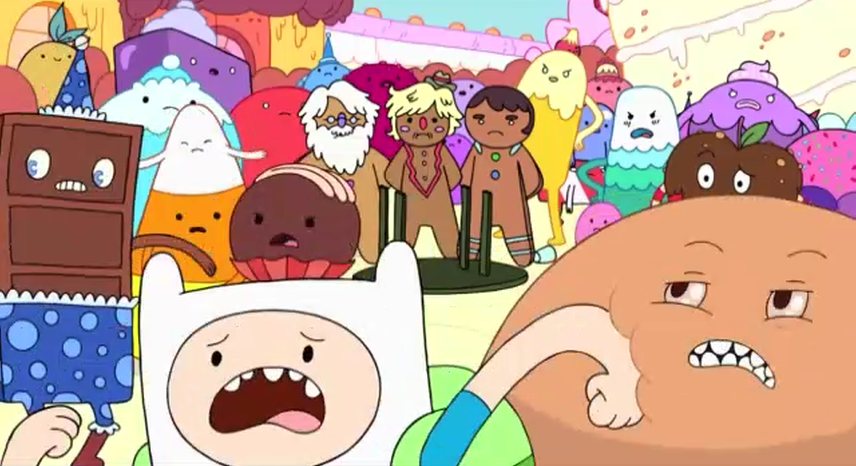This week’s symposium particularly attracted my attention. We discussed the concept of mob behaviour, and the power it has over our societies in understanding collective networks.
When we observe mob behaviour, we also often analyse the pack mentality. It is incredible how, when in a collective, larger group, an individual’s behaviour may be altered directly and dramatically. This is where we run into mobs or groups acting out in their respective communities and it being picked up on!

Adventure Time gets chaotic. Pack mentality takes over.

Lumpy Space Princess
Adventure Time
Duncan Watts asks us to reflect on individual behaviour and to think about how it cultivates and links to collective behaviour.
The notion of the pack mentality constitutes a ‘synchronised state’, where the actions and behaviours of many individuals aggregate to a group behaviour. Where individuals abilities and ideals are more closely aligned and they begin their behaviour together, the more likely they are to remain synchronized. This is generally not affected by the way in which individuals group or couple. Essentially, the pack mentality provides a stronger force than individual or couple behaviours.


If their distribution of abilities is great, such as in the final sprint of a ten-thousand-meter race, then no matter how much they want to stay together, the pack will disintegrate and synchrony will be lost.

Acting Out
As simple a model as this is, it turns out to be a nice representation of many interesting systems in biology, ranging from pacemaker cells to fireflies flashing to crickets chirping. Strogatz also studied the mathematics of physical systems, like arrays of super-conducting Josephson junctions extremely fast switches that might one day form the basis of a new generation of computers. (pp. 32-33.)
Duncan also puts this question to us: How is it that assembling a large collection of components into a system results in something altogether different from just a disassociated collection of components?
When we’re in a group, our behaviour from stray so far from where we would otherwise be as an individual. This can happen online too. We can see many examples of pack mentality – the most recent being the ALS ice bucket challenge. In the end, there were many people who didn’t even know why they were doing it – they just were… because EVERYBODY ELSE WAS.
